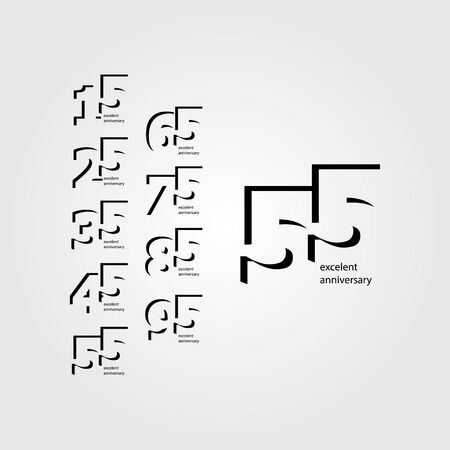Introduction to Dreams in British Culture
Throughout the ages, dreams have held a unique and somewhat mysterious place within the cultural tapestry of Britain. Far from being mere nighttime distractions, dreams have been woven into the very fabric of British folklore, superstition, and daily conversation. From the medieval era to the modern day, Britons have looked to their dreams not only as personal experiences but also as portents, warnings, or even messages from forces beyond the ordinary world. Whether discussed over a cup of tea in a rural village or analysed in Victorian parlours, dreams have traditionally sparked curiosity and speculation. This enduring fascination has shaped how people across generations interpret their own lives, make decisions, and even anticipate future events. By examining the role of dreams in British culture, we can begin to understand why they continue to captivate the collective imagination and influence everyday behaviour.
2. Historical Perspectives on Dream Interpretation
The interpretation of dreams in British culture has a deep and varied history, stretching from the medieval period through to the Victorian era. Throughout these centuries, dreams were often regarded as messages from the divine, omens, or reflections of ones spiritual state. During the Middle Ages, dream interpretation was heavily influenced by Christian doctrine; clergy and laypeople alike would look for signs from God or warnings about sin within their nocturnal visions. Notable figures such as Geoffrey Chaucer referenced dream symbolism in works like “The Book of the Duchess,” illustrating how dreams featured prominently in both literature and daily life.
Moving into the Tudor and Stuart periods, interpretations became increasingly nuanced. Physicians and scholars began to incorporate classical sources—such as Aristotle’s theories on dreams—into their understanding, blending religious belief with early scientific inquiry. By the time of the Enlightenment, dream interpretation became somewhat more sceptical, though superstitions persisted among the general populace. The Victorians, meanwhile, were fascinated by psychology and the unconscious mind. Figures like Samuel Taylor Coleridge documented their own dreams extensively, and Victorian dream books became popular household items.
| Era | Main Beliefs | Notable Figures/Sources |
|---|---|---|
| Medieval | Dreams as divine messages or moral warnings | Geoffrey Chaucer, Church sermons |
| Tudor/Stuart | Mix of classical ideas and Christian beliefs; some medical interpretations | William Shakespeare, Aristotle (translated works) |
| Victorian | Interest in psychology; popularisation of dream dictionaries; lingering superstitions | Samuel Taylor Coleridge, Victorian dream books |
This historical journey demonstrates that while scientific understanding of dreams has evolved, British folklore and superstition have continually shaped how individuals perceive their nightly visions. From Chaucer’s poetic musings to the Victorians’ fascination with hidden meanings, dreams have remained a subject of both curiosity and cultural importance across the ages.

3. Common Themes and Motifs in British Dream Folklore
Within the rich tapestry of British folklore, certain dream motifs have emerged time and again, each carrying its own traditional significance. Animals, for instance, feature heavily in dream interpretations throughout Britain. Dreaming of black dogs, for example, has often been considered an omen of misfortune or a warning of danger ahead, echoing tales of the spectral Black Shuck from East Anglian legend. Conversely, dreaming of robins is frequently seen as a sign of good news or the presence of a deceased loved one offering comfort—a motif that has persisted in both rural and urban communities.
Places also hold powerful meaning in British dream lore. Dreams set in churches might be interpreted as calls to reflection or spiritual renewal, while dreaming of crossing bridges is traditionally taken as a symbol of transition or overcoming obstacles. The landscape itself—be it misty moors, ancient forests, or rolling hills—often reflects the dreamer’s internal state, with foggy settings indicating confusion or uncertainty about the future.
Weather phenomena are another recurring element with deep-rooted interpretations. Rain in dreams can represent sorrow or cleansing, but persistent rainstorms may be viewed as warnings of ongoing troubles. On the other hand, dreaming of clear skies and sunshine is widely regarded as a harbinger of hope and brighter prospects on the horizon. Thunder and lightning, meanwhile, are sometimes linked to sudden revelations or dramatic changes to come.
These motifs are not merely fanciful; rather, they reflect collective experiences and anxieties shaped by centuries of life on these isles. Over generations, British communities have developed a shared language for deciphering these dream symbols—one that blends local custom with broader superstitious beliefs. Even today, individuals may recall their grandparents’ advice about interpreting animal encounters in dreams or heed old sayings about what certain weather portents might mean for their fortunes.
4. Dreams and Superstitions: Omen or Nonsense?
The British Isles have long harboured a fascination with the mysterious nature of dreams, leading to a variety of superstitious practices and beliefs. Throughout history, dreams have been interpreted as omens—sometimes foretelling good fortune, at other times warning of impending misfortune. This duality has prompted an ongoing debate: are dreams genuine messages from beyond, or simply random figments of the sleeping mind? Among the most popular methods for interpreting dreams in Britain was the use of dream books, which became household staples in many Victorian homes. These books claimed to decode dream symbols into tangible predictions for daily life, listing common motifs such as teeth falling out, losing one’s way, or encountering animals, each with its own prescribed meaning.
| Dream Symbol | Traditional Interpretation | Contemporary Attitude |
|---|---|---|
| Black cat | Good luck (contrary to waking superstition) | Often dismissed as coincidence |
| Falling teeth | A sign of coming bereavement | Seen as anxiety or stress manifesting |
| Flying | Freedom or impending change | Regarded as wish fulfilment |
| Water/floods | An omen of emotional upheaval | Linked to subconscious feelings |
| Losing shoes | Loss of direction or security | Interpreted psychologically rather than superstitiously |
This blend of folklore and personal belief led to diverse attitudes across Britain. In some regions, particularly rural communities, dreams were taken seriously—discussed over breakfast and even influencing daily decisions. Conversely, with the rise of scientific thinking in the 20th century, many began to view these interpretations as outdated nonsense, preferring psychological explanations influenced by Freud and Jung. Despite this shift, some superstitions persist; for instance, it is still not uncommon for someone to say “touch wood” after recounting a bad dream, in hopes of warding off its effects. Ultimately, whether embraced as omens or dismissed as fantasy, dreams remain deeply woven into the fabric of British culture and conversation.
5. Regional Variations Across the UK
The rich tapestry of British folklore and superstitions surrounding dreams is distinctly shaped by regional identities, with each part of the United Kingdom offering unique interpretations and traditions. In Scotland, dreams are often regarded as omens or messages from the spirit world. Scottish lore features tales of the “second sight,” a supposed ability to foresee future events through dreams or visions—a belief deeply embedded in Highland culture. Local legends tell of dream visitations from ancestral spirits, with particular attention paid to recurring symbols such as water or white animals, which are thought to forewarn of significant change.
In Wales, dream interpretation has close ties to both myth and language. The Welsh tradition of “cyfarwydd” (storytelling) preserves tales where dreams act as bridges between worlds, sometimes guiding heroes or cautioning against impending danger. A popular superstition holds that dreaming of leeks or daffodils—national emblems—signifies good fortune. Furthermore, Welsh folklore stresses the importance of recording one’s dreams on Saint David’s Day, believing this practice brings spiritual insight for the coming year.
England presents a diverse landscape influenced by both rural customs and literary heritage. In many English counties, there is a longstanding belief that dreaming of certain flowers—like bluebells or roses—predicts love or prosperity. Superstitions about “dreaming true” (having prophetic dreams) are found in various localities; for instance, it was once common for young women to place sprigs of rosemary under their pillows on Midsummer’s Eve to dream of their future spouse. Legends such as those surrounding Robin Hood also feature dreams as omens or calls to adventure.
Meanwhile, in Northern Ireland, the intersection of Celtic myth and Christian symbolism gives rise to distinctive attitudes towards dreams. Folklore often frames dreams as warnings against misfortune or as communications from deceased loved ones. There is a widespread belief in the significance of “Friday night dreams”—visions experienced on this day are said to be particularly truthful. Local tales sometimes recount how dreaming of specific landmarks, like ancient ringforts or standing stones, indicates a connection with the land’s spiritual guardians.
Overall, while the shared British tradition views dreams as meaningful portents, each region adds its own nuance and colour through local legends and cultural practices. These variations not only reflect historical influences but also demonstrate how communities across the UK continue to find personal and collective significance in the world of dreams.
6. Dreams in Contemporary British Life
While the landscape of British life has changed dramatically over the centuries, dreams and their associated superstitions have not vanished—they have simply evolved. In contemporary Britain, the legacy of dream interpretation endures, but it is often recontextualised within modern frameworks such as psychology, self-help, and even entertainment. The language around dreams still borrows from older folklore; for instance, expressions like “chasing a dream” or “it was only a nightmare” echo deeper cultural understandings of aspiration and anxiety rooted in historical beliefs.
Media plays a significant role in shaping how dreams are perceived today. Television programmes, radio segments, and newspaper columns occasionally feature dream analysts who interpret common symbols—mirroring the village wise women or folkloric guides of the past. Popular culture is awash with references to dreams: from music lyrics that evoke night visions to film plots where dreams blur into reality. These representations keep alive the idea that dreams may carry hidden meanings or warnings, even if most people now approach them with a blend of scepticism and curiosity.
Interestingly, some traditional superstitions persist in subtle forms. For example, mentioning a bad dream first thing in the morning or sharing it with someone to avoid its effects remains a small ritual for some. Online forums and social media groups dedicated to dream discussion demonstrate a collective fascination with interpreting nocturnal experiences—sometimes blending scientific language with old wives’ tales. The British habit of understatement also manifests here; one might say, “I had the oddest dream last night,” inviting conversation while downplaying any overt belief in supernatural meanings.
Reflecting on this evolution, it is clear that dreams continue to provide a space for personal reflection and communal storytelling in Britain. They offer metaphors for hopes and fears, remain woven into the linguistic fabric, and serve as touchstones in both private and public discourse. Although explicit belief in dream omens may have waned, their symbolic power persists—testament to how folklore adapts rather than disappears.


